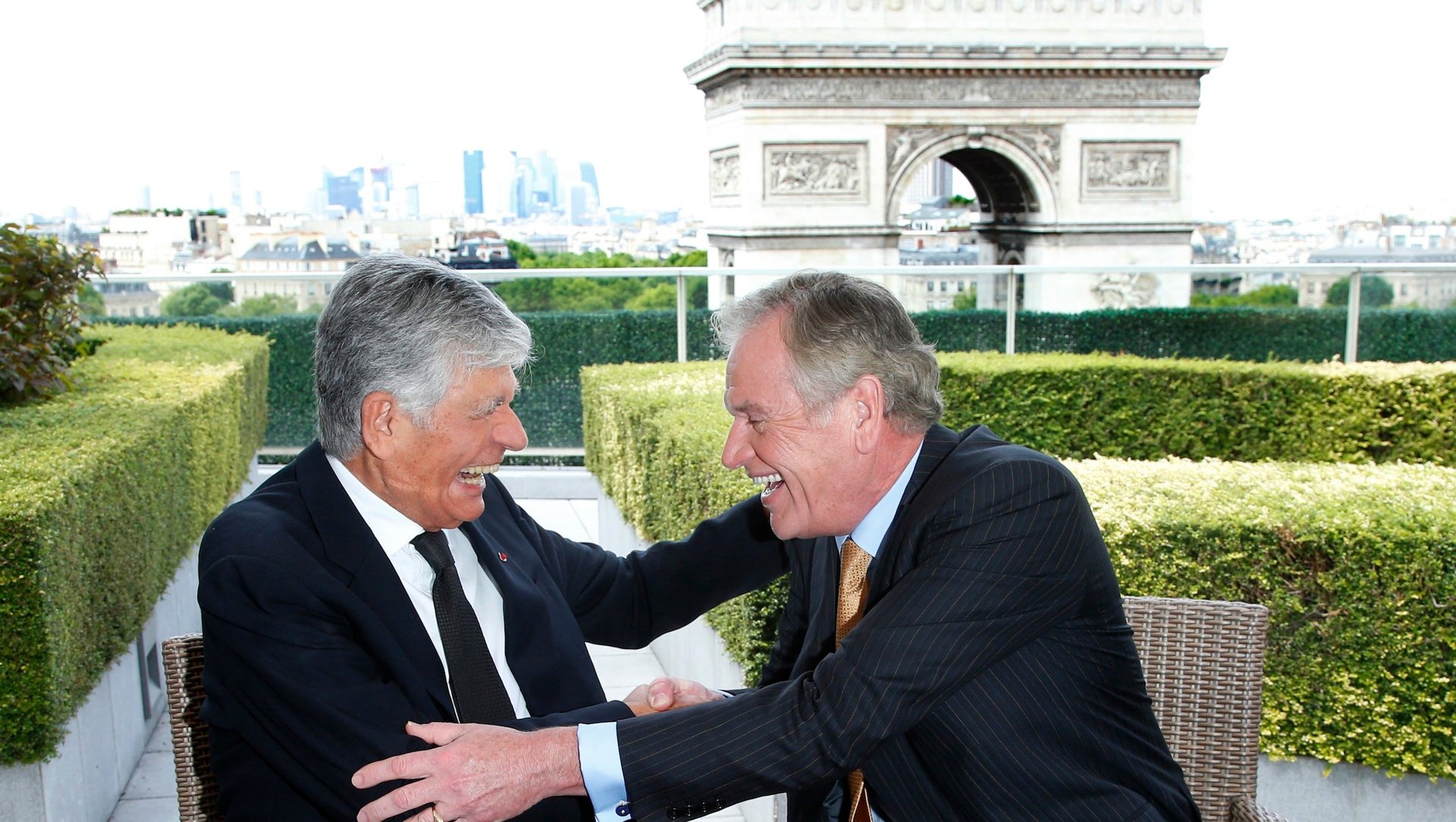For Publicis and Omnicom, a “merger of equals” is an ad to appease government officials
Paris-based Publicis and New York-based Omnicom are combining to create the world’s largest advertising company in what they are calling a “merger of equals.” But sooner or later, one company in such arrangements usually gets the upper hand. How that plays out will affect the deal’s chances of passing muster with antitrust regulators and other government officials.


Paris-based Publicis and New York-based Omnicom are combining to create the world’s largest advertising company in what they are calling a “merger of equals.” But sooner or later, one company in such arrangements usually gets the upper hand. How that plays out will affect the deal’s chances of passing muster with antitrust regulators and other government officials.
The companies have done a good job creating the impression of a merger of equals. Publicis and Omnicom investors will each hold about 50% of the new company, while Publicis CEO Maurice Levy and Omnicom CEO John Wren will jointly lead the firm. The new board will have seven representatives from each company. The deal will also create a new holding company based in neutral territory, the Netherlands, and its shares will trade in both New York and Paris.
But compromises are still required in any merger of equals. In this case, the Publicis name comes first in the new firm’s identity, Publicis Omnicom Group, but the company will trade under Omnicom’s current ticker symbol, OMC. More importantly, the co-CEO arrangement will only last 30 months, after which Omnicom’s Wren will become the sole CEO. Levy will remain as non-executive chairman, but it’s unclear how long he would stay on the board since he is 71.
Together, it all suggests Omnicom could have the upper hand. And that will be a test for French officials, who are known to have a nationalist streak when it comes to cross-border deals. Earlier this year, Yahoo dropped its effort to acquire the French online video firm Dailymotion because of opposition from the French. However, a deal for US-based General Mills to buy French yogurt brand Yoplait was approved after setting up a complicated structure to appease French officials.
The other hurdle will be antitrust regulators since the deal creates the world’s largest advertising agency, surpassing London-based WPP. Governments on both sides of the Atlantic Ocean have flexed their muscle in recent deals. The European Commission in 2012 blocked a merger of equals between the Deutsche Boerse and NYSE Euronext exchanges, with some of the opposition containing nationalist overtones. In another example, the US Department of Justice in 2011 fought against AT&T’s acquisition of T-Mobile.
The billing of a merger of equals is aimed at keeping both sides happy, but shareholders may be less impressed by the arrangement. Investors would likely want to see cost cuts, possible layoffs, and other streamlining measures to get rid of overlap created by the merger. Clients of the combined firms could also protest since the deal is rife with conflicts of interest; Omnicom represents Pepsi, for instance, while Publicis has Coca-Cola.
In short, the Omnicom-Publicis merger is not yet a sure thing. With all the hurdles, their skills in advertising this deal will certainly be put to the test.